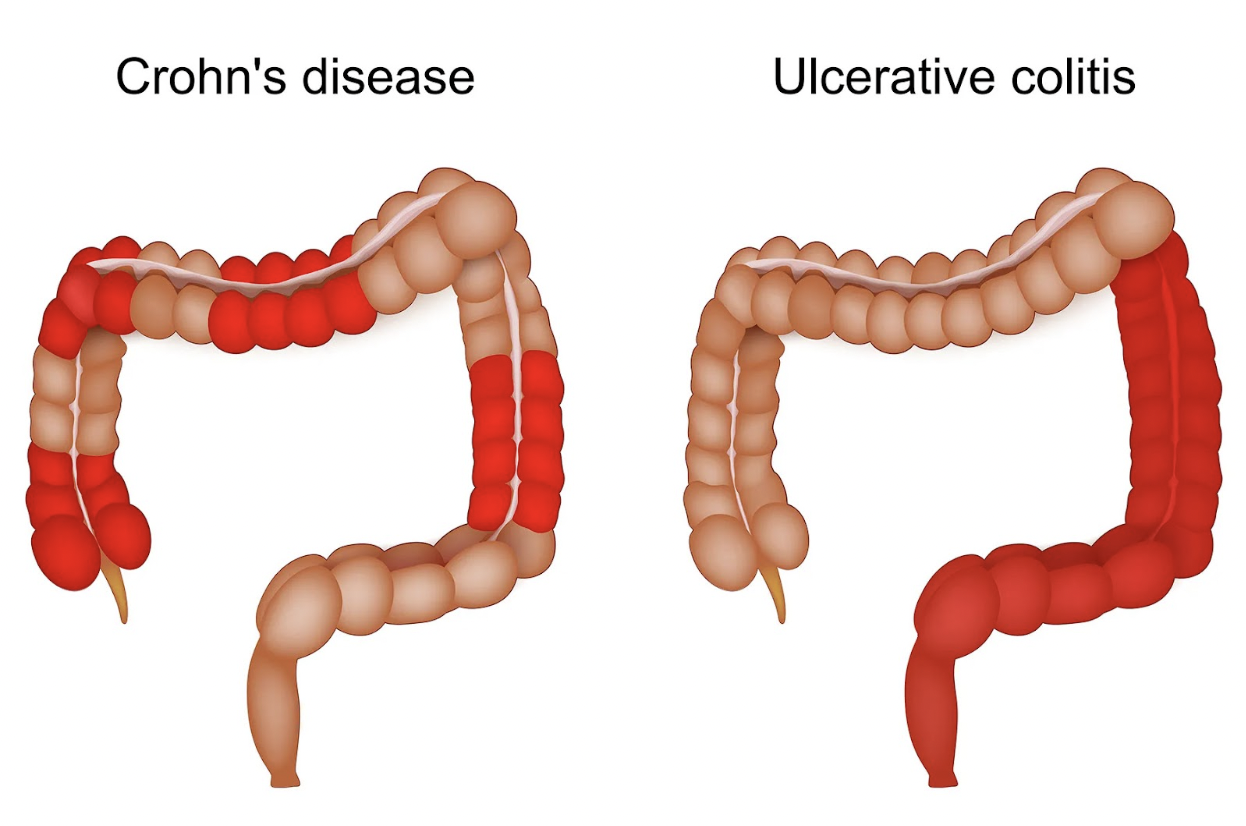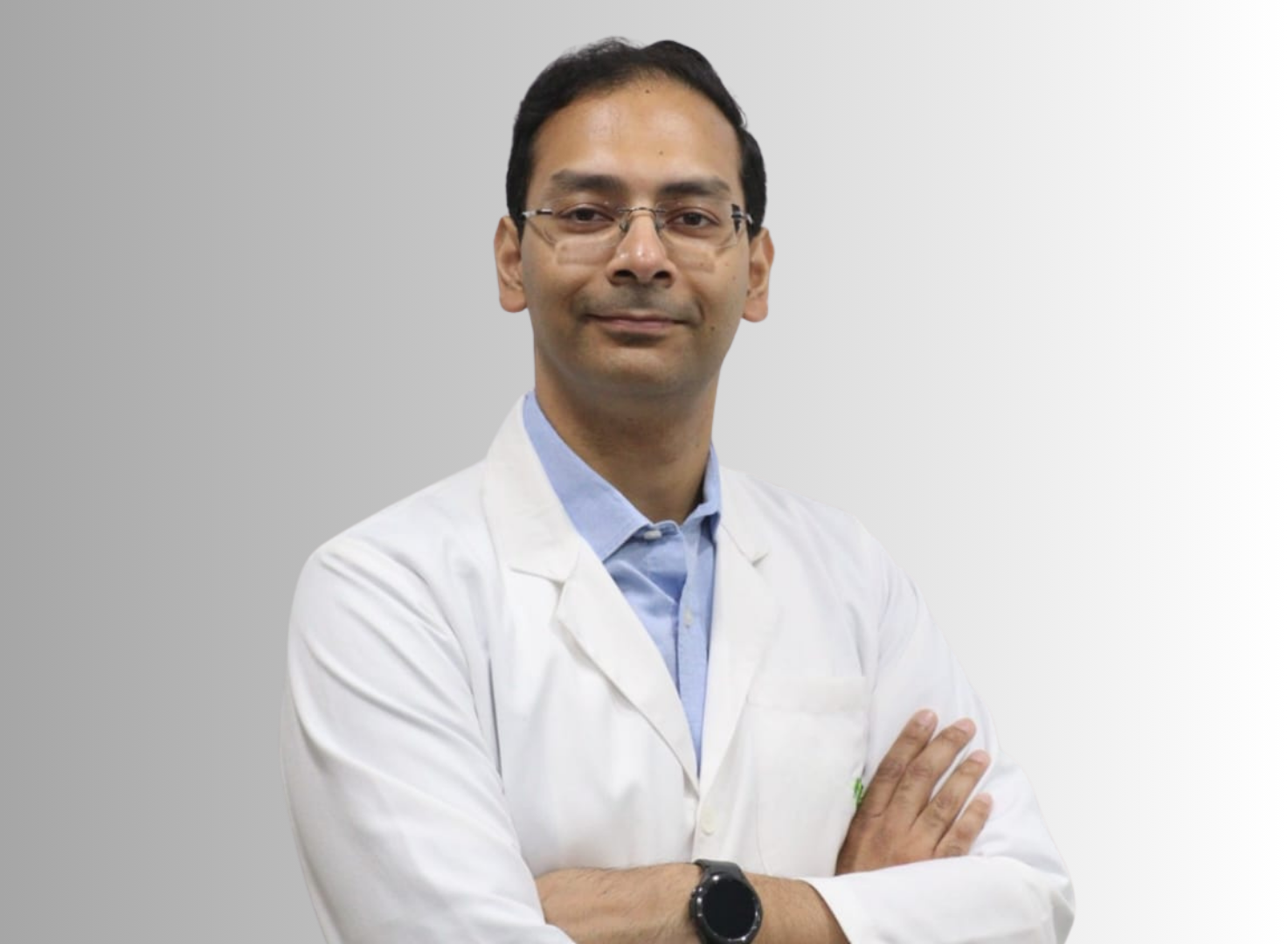Overview
Inflammatory bowel disease refers to conditions that result in chronic inflammation in the digestive tract. The symptoms of this condition may suddenly appear and flare up, causing excessive stomach cramps, diarrhea, and other discomforts. If not managed properly, IBD may affect overall physical health and mental well-being. IBD is a lifelong disease with no cure. However, you can consult Dr.Anando Sengupta for an IBD treatment in Ashok Vihar and manage the condition through different treatment options.
What is IBD?

Inflammatory bowel disease, also known as IBD, is an umbrella term for a group of conditions leading to swelling and inflammation in the gastrointestinal tract. It occurs when the immune system in the GI tract mistakenly attacks healthy tissues, leading to inflammation-related conditions, such as Crohn’s disease and ulcerative colitis.
- Crohn’s Disease: In this type of IBD, the lining of the digestive tract is inflamed. Crohn’s disease affects the deeper layer of the digestive tract and small intestine. However, it may also affect the large intestine, resulting in excessive inflammation and discomfort.
- CUlcerative Colitis: Ulcerative colitis results in sores and inflammation on the lining of the colon and rectum.
For some people, IBD may occur in the form of mild illness. However, for others, this condition may lead to disability that can further develop into life-threatening complications.
When to See a Doctor?
IBD may affect your quality of life on many levels. Although it primarily attacks the colon and the rectum, its effects may travel to other parts of the body as well. The symptoms may appear and disappear. People with this condition may experience flare-ups followed by intervals with no symptoms. It is advised to be watchful of the following symptoms and seek IBD treatment if you experience them frequently:
- Persistent abdominal pain
- Urgency to have a bowel movement
- Fecal incontinence
- Rectal bleeding
- Fever
- Unexplained weight loss
- Anemia
- Malnutrition and delayed growth
- Depression and anxiety
- Swelling and masses due to inflammation in the intestines.
Treatment for IBD
Advanced Treatment Options for IBD
Today, there have been multiple advancements in the treatment of IBD so that patients can manage this condition properly. Many emerging trends and therapies have offered hope for a more effective management of the disease and improved patient outcomes.
- Biologics, such as anti-TNF agents, are considered to be the cornerstone of IBD management. Scientists are developing newer biologics with different mechanisms, including those targeting cytokines like IL-12 and IL-23, to offer alternatives for patients who do not respond properly to ongoing treatments.
- Janus kinase, or JAK inhibitors are considered to be another promising class of drugs in patients with moderate to severe IBD. This line of treatment has been proven to be effective for patients who haven’t responded well to other therapies.
- Scientists are continuously studying gut microbiome, fecal microbiota transplantation, and probiotics for their potential to treat and manage conditions related to IBD.
Procedure
FIf the management of IBD has become difficult through medication and alternative therapies, an IBD specialist may consider surgery as the last resort to treat the condition.
Before
Before the surgery, the ulcerative colitis specialist will monitor your overall health. They will give you some important instructions to follow, which include avoiding spicy and oily foods for a few days and quitting smoking and drinking. If you have any other medical condition, discuss it with them, and they will suggest the needful.
During
Based on your specific case of IBD, a professional like Dr Anando Sengupta (an IBD specialist in ashok vihar ) will carry out the following procedures.
For Crohn’s Disease
- Strictureplasty: This procedure involves reshaping the bowel to treat narrowing and blockages.
- Resection: Under this procedure, the surgeon removes the damaged part of the small intestine or large intestine and connects healthy sections.
- Ileocaecal resection: The surgeon removes the terminal ileum and the caecum and connects the small intestine with the large intestine.
- Colectomy with ileostomy: All or part of the colon is removed, and the opening of the small intestine is brought to the surface of the abdomen to create an ileostomy. The surgeon attaches the bag to collect waste.
- Colectomy with ileo-rectal anastomosis: The small intestine is connected directly to the rectum, bypassing the colon in case the colon is diseased but the rectum remains healthy.
- Proctocolectomy and ileostomy: Both the rectum and colon are removed, and an ileostomy is created with the small intestine.
- Surgery for abscesses and fistulas: The surgeon lances and drains the abscesses. Fistulas are treated by opening and cleaning them and leaving them to heal.
For Ulcerative Colitis
- Proctocolectomy and ileostomy: Both the rectum and colon are removed, and an ileostomy is created with the small intestine.
- Restorative Proctocolectomy with ileo-anal pouch: The surgeon removes the entire colon and rectum and makes a pouch using the ileum and joins it to the anus.
- Colorectal resection: Some of the large intestine is removed and rejoined.
Laparoscopic Procedures
Laparoscopic procedures have emerged as a modern approach to performing surgery for IBD with a minimally invasive technique. The ulcerative colitis doctor performs the said procedures through a keyhole surgery or laparoscopy. Instead of making one large incision, the surgeon makes several small incisions and performs the procedure through advanced surgical instruments.
After
Depending on the type of surgery you have had, the care team will give you important instructions to follow. You may or may not stay at the hospital for the rest of the day, depending on your overall health. Keep your body well-rested for the next 2-3 days to recover properly. The healthcare professional will prescribe medicines and suggest important dietary instructions that you must follow to manage IBD.
Why Choose Us?
Dr. Anando Sengupta is a well-known ulcerative colitis specialist in Ashok Vihar. He specialises in the treatment of Inflammatory Bowel Disease (IBD), including ulcerative colitis and Crohn’s disease. With years of experience, Dr. Sengupta provides personalized care to help patients manage symptoms, reduce inflammation, and improve their overall digestive health.
Dr. Sengupta’s clinic is equipped with state-of-the-art diagnostic tools that give an accurate diagnosis of your condition. His multidisciplinary team ensures the design of the best IBD treatment in Ashok Vihar for your condition. The doctor and his team deliver personalized care with the use of the latest protocols for IBD treatment, ensuring the best results. With many years of practice, Dr. Anando Sengupta, gastroenterologist in Ashok Vihar, has proven success in managing complex and chronic IBD cases.
Frequently Asked Questions
Symptoms of IBD include inflammation in the stomach, anemia, fecal incontinence, persistent abdominal pain, urgency for bowel movement, rectal bleeding, and more.
There is no cure for IBD as of now. However, this condition can be managed through medication and lifestyle changes. The doctor may even recommend surgery in some cases.
The doctor may combine a blood and stool test to check for inflammation or infection. They may also perform a colonoscopy or upper endoscopy to confirm the diagnosis of the condition.




